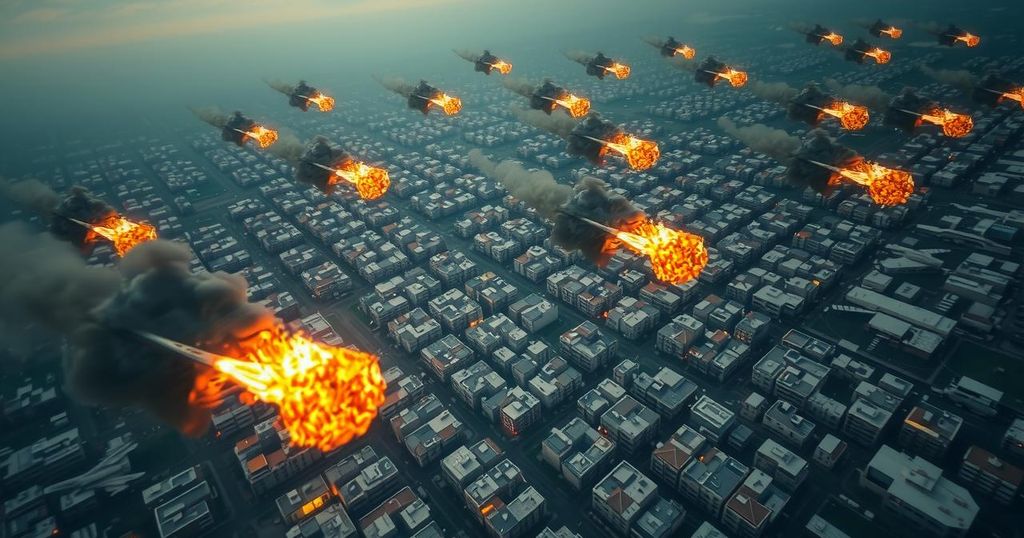Israeli air strikes have resulted in multiple casualties in Beirut and Gaza, including an attack on a school which killed three. Reports indicate a possible famine in northern Gaza as violence intensifies, with a high percentage of casualties being women and children. UN peacekeeping forces are facing challenges amid rising violence.
In recent events, Israeli air strikes have intensified, particularly impacting Beirut and Gaza. Al Jazeera reports that Israeli forces have targeted a school sheltering displaced individuals in Gaza City’s Tuffah neighborhood, resulting in three fatalities and multiple injuries. Alongside this tragic incident, at least twelve strikes have been executed on the southern suburbs of Beirut, claiming three lives and injuring around thirty in Tyre. The ongoing conflict has led to a dramatic increase in casualties, with the Health Ministry of Gaza documenting at least thirty-nine deaths and one hundred twenty-three injuries from Israeli attacks within the last twenty-four hours. Alarmingly, reports indicate that nearly seventy percent of those who have died are women and children, raising significant concerns over humanitarian law violations. Furthermore, the independent Famine Review Committee has issued serious warnings regarding the potential of famine in northern Gaza amidst the escalating violence and blockade. Moreover, Charles Stratford of Al Jazeera highlighted the challenges faced by the UN Interim Force in Lebanon (UNIFIL), noting that it has experienced considerable damage and violence, particularly in the last month. This escalating violence poses substantial risks to both civilians and international peacekeeping efforts.
The ongoing conflict between Israeli forces and Palestinian groups has resulted in significant casualties and humanitarian crises, escalating tensions in the region. The historical context of this conflict is essential to understanding the current situation, as it involves issues of territory, security, and human rights. Destroyed infrastructure and the loss of civilian life exacerbate the humanitarian crisis, particularly in areas like Gaza where basic needs are severely compromised. The role of international forces, such as UNIFIL, is crucial in maintaining some level of order, however, their effectiveness is increasingly challenged by the violence that surrounds them and the volatile political climate in the region.
In conclusion, the recent Israeli air strikes have led to increasing fatalities and injuries among civilians, particularly women and children, underscoring grave violations of humanitarian law. The potential for famine in northern Gaza looms on the horizon, while International peacekeeping forces are hindered by ongoing violence. This escalating situation calls for urgent global attention and intervention to protect civilians and address the severe humanitarian issues at hand.
Original Source: www.aljazeera.com






